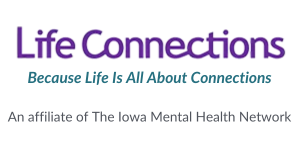In recent years there has been a strong focus on the practice of Mindfulness but what really does this practice consist of?
Mindfulness is a mental state where an individual becomes aware of themselves in the present moment. This includes paying attention to feelings, thoughts, and bodily sensations (including the 5 senses). Paying attention to these feelings, thoughts and sensations allows us to observe them and define them in an objective way; allowing us to re-label them in order to avoid self-criticism and negative thinking as well as allow ourselves to manage difficult emotions. Some individuals stray from Mindfulness because they associate it with religion or spirituality, however, the practice of Mindfulness includes or excludes whatever parts you individually decide. The practice is meant to be unique to your personal preferences.
Mindfulness can be done in a variety of ways. Some people build a period of time into their day to practice Mindfulness, while others use it as a tool for combatting overly felt emotions that may become overwhelming. Many also just add intermittent pauses throughout their day in order to recalibrate their mind and body. The key is to understand what works with your lifestyle and how to best support your mind’s peace.
There is an abundance of research that shows how good Mindfulness is for our bodies. Mindfulness has been shown to dramatically decrease stress, strengthen performance, and improve awareness. These improvements to awareness are not only in personal thoughts and feelings, but also when focusing and understanding others in conversation. We often see professional athletes or performers stop, close their eyes and take deep breaths before they delve into their performance; this is a Mindfulness practice. Even highly skilled performers take advantage of Mindfulness practices in order to block outside thoughts, noises, potential judgments or negative performances of the past to focus on being present. Only one goal is left in mind . . . success.
One example of a brief Mindfulness practice you can easily build into your day begins by sitting comfortably and taking deep breaths. As you focus on your breath you notice your present sensations. Notice things like sounds around you, scents, the temperature or feeling of your seat. As you become aware of those sensations, switch your attention to your present thoughts and emotions. Examine why these specific thoughts or feelings may be present, avoid judging them or pushing them away even if they are negative. Acknowledge them, be present with them, and if possible challenge or reframe them into a more positive light. No matter what, even just acknowledging them can help you to better understand yourself and move forward. Be sure to practice self-compassion when acknowledging those thoughts and feelings.
Although this is a great Mindfulness exercise for adults, Mindfulness looks a bit different when it comes to children. Unfortunately, Mindfulness is a seemingly impossible feat for those that have an attention span of just minutes. This is all the more reason for children to participate, especially during the school day. Mindfulness activities for children can engage the imaginative part of their brain which helps them to relax. Mindfulness can also help them to become more focused and feel safe. Below is a simple visual you can use to lead students in a Mindfulness activity. Images like the one below are excellent for children who have a hard time closing their eyes and staying still. Instead, these children can stare at the tree to help keep their mind focused. Encourage the children to imagine themselves as a tree while you read the bottom narrative.
Mindfulness is utilized by therapists to assist clients in awakening themselves to the present. The goal is to leave the past behind and the future ahead. This is, however, much easier said than done and is not often a natural process for most individuals. Mindfulness takes daily practice in order to become better aware and more accepting of somewhat intrusive thoughts, feelings, and bodily sensations. Although to some this seems like it may not be beneficial or is just one extra thing to fill your overly full day, adding Mindfulness can actually help make your day-to-day life more relaxing and enjoyable. I challenge you to allow yourself to feel less overwhelmed and tired at the end of each day by incorporating small bouts of Mindfulness starting today. You may be shocked by what you feel a few months from now.
Tina Rice, LMSW, MSEd, CADC
Because Life is All About Connections
Life Connections provides in-home Behavioral Health Intervention services, Therapy services, autism (ABA) services and Children’s Mental Health waiver services in our 13 office locations and approved schools across Iowa. Life Connections was founded in March of 2009 with the intent to serve the children and families of Cedar Rapids and surrounding cities.
Life Connections is a highly professional and caring counseling and behavioral health provider. We offer a wide array of services to treat mental health issues including Applied Behavior Analysis Services, Behavioral Health Intervention Services, mental health therapy, school-based therapy programs, and substance use treatment.
For more information, please call 319-409-6922.
Resources:
- National Suicide Prevention Hotline 800-273-8255
- Crisis Text line text to 741741
- The Trevor Project – for LGBTQ+ young adult community 866-488-7386
- Rape, Abuse, and Incest National Network 800-656-4673
Start Your Services
Start Mental & Behavioral Health Services with Life Connections | Because life is all about connections.

